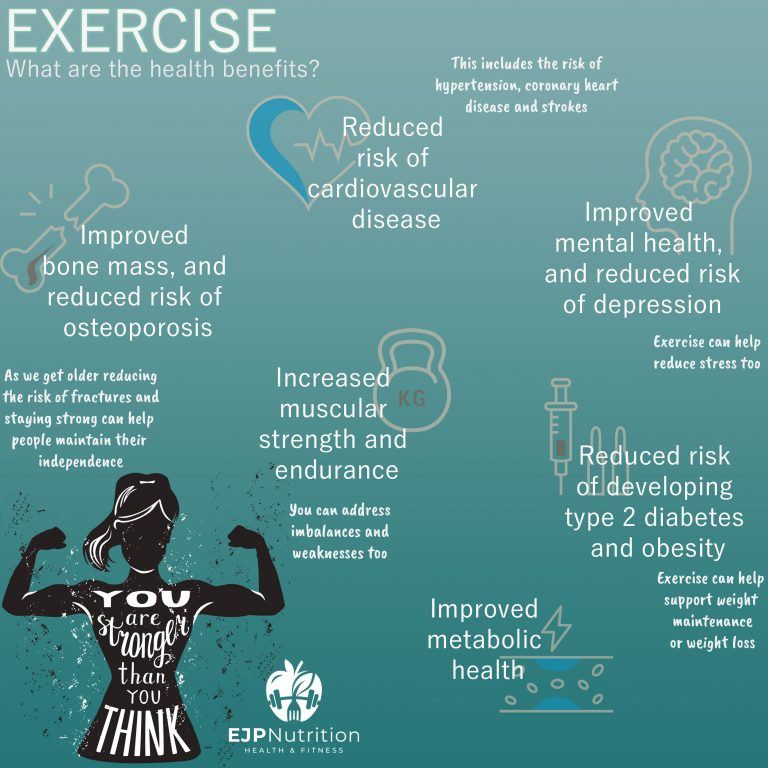After a certain TV program last week it seems the whole using exercise to justify food choices rhetoric is back in the mainstream. While yes you can use exercise to help lose weight, there are so many benefits that are separate from aesthetic goals.
How do you feel when you move? Aches and pains, or out of breath walking up the stairs? These things are fitness related, not appearance related. Exercise to feel stronger and healthier.
It’s worth noting within your daily energy expenditure exercise usually accounts for a very small amount (for active people maybe circa 5-10%, unless you’re an athlete who spends a much larger amount of time training). If weight loss is a goal increasing your NEAT and/or decreasing your calorie intake would make a much bigger impact.
Ok, back to my original point. Which is why exercise is great! The UK physical activity guidelines is for adults to do 150 minutes of moderate intensity exercise per week, or 75 minutes of vigorous intensity exercise. However a survey showed only 62% met those guidelines.
Benefits
Regular exercise has lots of physiological benefits. These include stronger bones and muscles. As we age we have higher risk of osteoporosis (reduced bone density – making them more brittle and susceptible to fractures from falls) and sarcopenia (age related muscle loss). Resistance training is the best way to slow or prevent these conditions.
Cardio will improve your aerobic capacity which makes your heart, lungs and circulatory system more efficient. This all contributes to reducing your risk of developing cardiovascular disease. Exercise has also been shown to improve mental health. Other psychological benefits include improved confidence and self esteem. It can help reduce anxiety and stress too.
Exercise can also help you maintain a stable weight, or assist weight loss. Resistance training is also good to change your body composition and strength by building muscle. It’s just one area of your life though, and training doesn’t have to be about how you look. Think about how it makes you feel.
References: NHS Digital (2017 Health survey for England). Active IQ.
(Reposted from Instagram)


